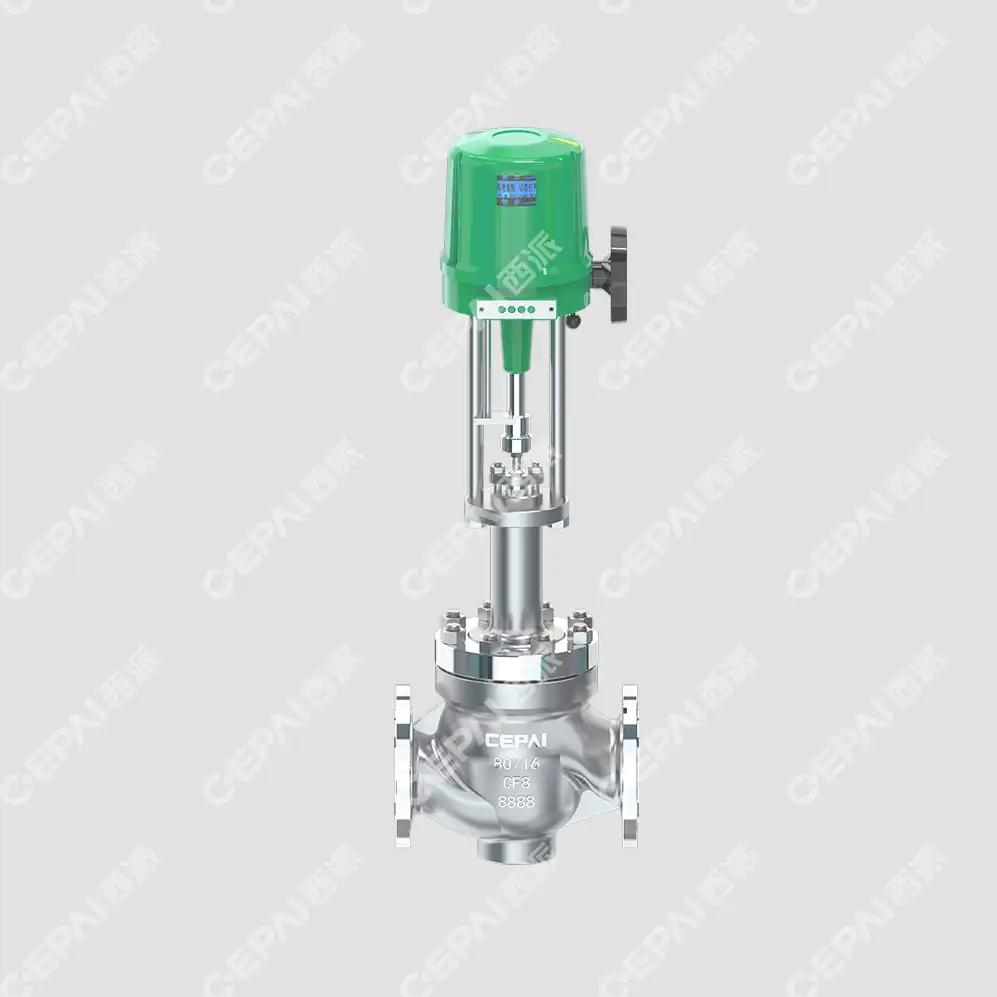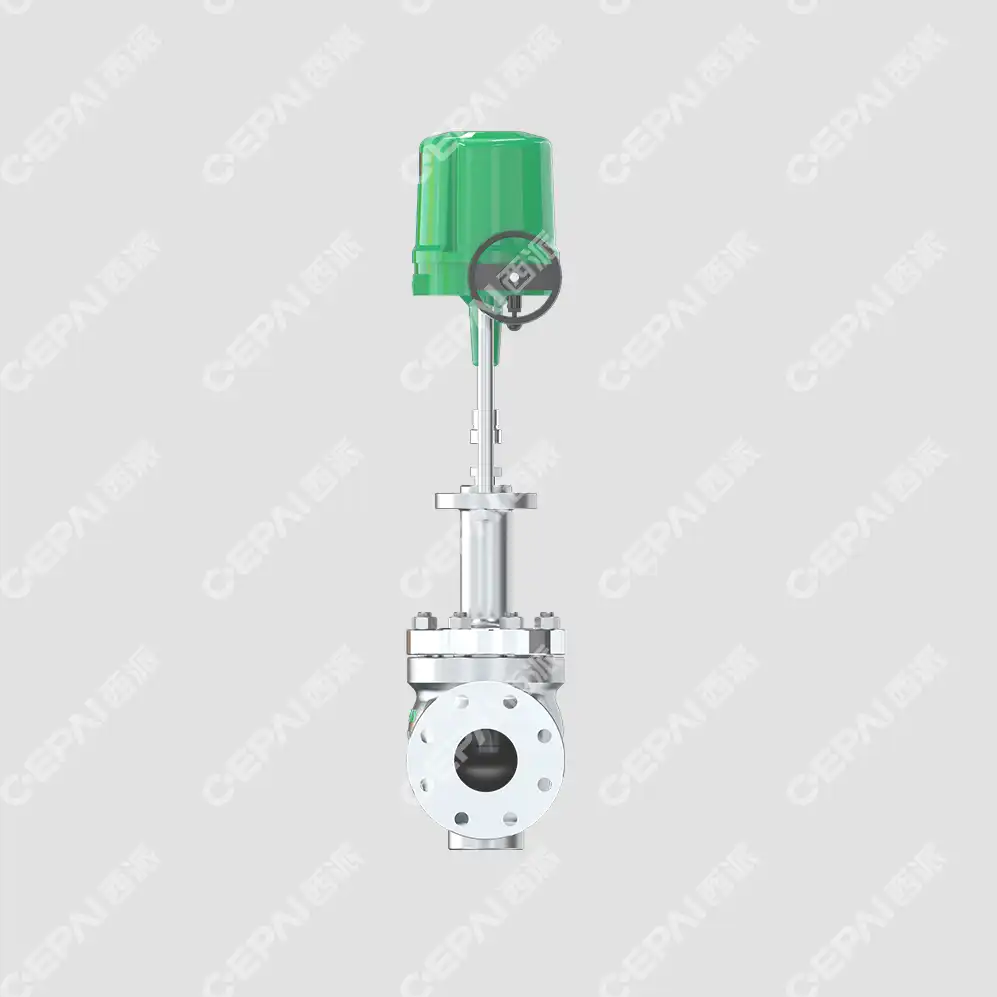Improving Long-Term Reliability in Electric Valve Operations
In today's industrial landscape, maintaining consistent and reliable operation of critical infrastructure components has become paramount for ensuring operational efficiency and safety. Electric Control Valve systems represent the backbone of modern process automation, where even minor failures can result in significant downtime, safety hazards, and substantial financial losses. The pursuit of long-term reliability in electric valve operations encompasses sophisticated engineering principles, advanced materials science, and comprehensive maintenance strategies that work synergistically to deliver exceptional performance across diverse industrial applications.
Advanced Design Principles for Enhanced Valve Longevity
Material Selection and Engineering Excellence
The foundation of reliable Electric Control Valve operation begins with meticulous material selection and precision engineering. Modern valve manufacturers employ advanced metallurgical techniques and computational modeling to optimize material properties for specific operating environments. High-grade stainless steel alloys, specialized coatings, and corrosion-resistant materials are carefully selected based on comprehensive analysis of operating conditions including temperature fluctuations, pressure variations, and chemical compatibility requirements. The integration of advanced manufacturing processes such as investment casting and precision machining ensures dimensional accuracy and surface finish quality that directly impacts valve performance and longevity. Furthermore, the implementation of finite element analysis during the design phase allows engineers to identify potential stress concentration points and optimize valve geometry to minimize wear patterns and extend operational life.

Precision Control Mechanisms and Actuation Systems
The reliability of Electric Control Valve systems heavily depends on the sophistication of their control mechanisms and actuation systems. Modern electric actuators incorporate brushless DC motors, precision gear reduction systems, and intelligent positioning feedback mechanisms that provide exceptional accuracy and repeatability. These advanced actuation systems feature self-diagnostic capabilities that continuously monitor performance parameters such as torque requirements, positioning accuracy, and response times to detect potential issues before they escalate into system failures. The integration of variable frequency drives and smart control algorithms enables optimal power management and reduces mechanical stress on valve components during operation. Additionally, redundant safety systems and fail-safe mechanisms ensure continued operation even under adverse conditions, providing multiple layers of protection against unexpected failures.
Sealing Technology and Leakage Prevention
Effective sealing technology represents a critical aspect of long-term Electric Control Valve reliability, where innovative sealing solutions directly impact operational efficiency and environmental compliance. Advanced elastomeric materials, including PTFE-based compounds and specialized O-ring configurations, are engineered to withstand extreme temperature ranges and aggressive chemical environments while maintaining consistent sealing performance. The implementation of dynamic sealing systems with self-compensating mechanisms automatically adjusts to wear patterns and thermal expansion, ensuring continuous leak-tight operation throughout the valve's service life. Modern seal designs incorporate multi-stage sealing arrangements and backup sealing systems that provide redundancy and enhanced reliability in critical applications. Furthermore, the development of intelligent sealing monitoring systems enables real-time assessment of seal integrity and predictive maintenance scheduling to prevent unexpected failures.
Predictive Maintenance Strategies and Performance Monitoring
Real-Time Condition Monitoring Systems
Contemporary Electric Control Valve installations increasingly incorporate sophisticated condition monitoring systems that provide continuous assessment of valve performance and health status. These advanced monitoring solutions utilize multiple sensor technologies including vibration analysis, thermal imaging, acoustic emission monitoring, and electrical signature analysis to detect early indicators of component degradation or performance deviation. The integration of wireless sensor networks and IoT connectivity enables remote monitoring capabilities that allow maintenance personnel to track valve performance trends and identify potential issues without physical inspection requirements. Machine learning algorithms analyze historical performance data to establish baseline operating characteristics and detect anomalous behavior patterns that may indicate developing problems. This proactive approach to condition monitoring significantly reduces unplanned downtime and enables optimized maintenance scheduling based on actual equipment condition rather than arbitrary time intervals.
Data Analytics and Performance Optimization
The implementation of advanced data analytics and performance optimization strategies transforms traditional Electric Control Valve maintenance approaches from reactive to predictive methodologies. Comprehensive data collection systems gather operational parameters including cycling frequency, operating pressure ranges, temperature variations, and control signal characteristics to build detailed performance profiles for individual valve installations. Statistical analysis and trending algorithms identify gradual performance degradation patterns that may not be immediately apparent through visual inspection or basic operational monitoring. The correlation of valve performance data with process conditions and environmental factors enables the development of customized maintenance strategies tailored to specific operating environments and application requirements. Additionally, the integration of digital twin technology creates virtual representations of valve systems that enable simulation of various operating scenarios and optimization of maintenance intervals.
Integration with SCADA and Control Systems
Modern Electric Control Valve reliability strategies emphasize seamless integration with supervisory control and data acquisition (SCADA) systems and distributed control systems (DCS) to enable comprehensive system-wide monitoring and coordination. This integration facilitates centralized monitoring of multiple valve installations across complex industrial facilities, providing operators with real-time visibility into valve performance and status. Advanced control algorithms can automatically adjust valve operating parameters based on system requirements and performance feedback, optimizing efficiency while minimizing wear and stress on valve components. The implementation of standardized communication protocols ensures compatibility with diverse control system architectures and enables future system expansions or upgrades without significant infrastructure modifications. Furthermore, the integration of alarm management systems and automated reporting capabilities ensures that maintenance personnel receive timely notifications of performance anomalies or maintenance requirements.
Quality Assurance and Certification Standards
International Standards Compliance and Testing Protocols
The reliability of Electric Control Valve systems is fundamentally dependent on adherence to rigorous international standards and comprehensive testing protocols that validate performance characteristics under diverse operating conditions. Manufacturing facilities implement stringent quality management systems compliant with ISO 9001 standards, ensuring consistent production quality and traceability throughout the manufacturing process. Specialized testing facilities conduct extensive performance validation including pressure testing, temperature cycling, endurance testing, and environmental exposure testing to verify compliance with industry standards such as API, ANSI, and IEC specifications. The implementation of statistical process control methodologies enables continuous monitoring of manufacturing quality metrics and immediate identification of process variations that could impact product reliability. Additionally, third-party certification agencies conduct independent verification of product performance and quality management systems, providing objective validation of manufacturer capabilities and product reliability claims.

Factory Testing and Quality Control Procedures
Comprehensive factory testing and quality control procedures form the cornerstone of Electric Control Valve reliability assurance, encompassing multiple stages of inspection and validation throughout the manufacturing process. Each valve assembly undergoes rigorous dimensional inspection using precision measurement equipment to ensure compliance with engineering specifications and tolerances. Functional testing protocols evaluate valve performance characteristics including flow capacity, pressure drop, leakage rates, and control response under simulated operating conditions. Advanced testing equipment including automated test stations and computer-controlled testing systems enable consistent and repeatable testing procedures while generating detailed documentation of valve performance characteristics. The implementation of witness testing protocols allows customers to observe and verify valve performance prior to shipment, ensuring confidence in product quality and performance capabilities. Furthermore, comprehensive material traceability systems maintain detailed records of material sources, heat treatment processes, and manufacturing procedures for each valve component.
Continuous Improvement and Innovation Programs
Leading Electric Control Valve manufacturers implement comprehensive continuous improvement and innovation programs that drive ongoing enhancement of product reliability and performance capabilities. Research and development initiatives focus on emerging technologies including advanced materials, smart actuator systems, and integrated diagnostic capabilities that address evolving industry requirements and operational challenges. Customer feedback systems and field performance monitoring programs provide valuable insights into real-world valve performance and identify opportunities for design improvements and reliability enhancements. The collaboration with academic institutions and research organizations facilitates access to cutting-edge technologies and scientific expertise that accelerate innovation and technology development. Additionally, investment in advanced manufacturing technologies and automation systems enables improved production quality, consistency, and efficiency while reducing manufacturing costs and lead times.
Conclusion
The pursuit of long-term reliability in Electric Control Valve operations represents a multifaceted engineering challenge that requires comprehensive attention to design excellence, predictive maintenance strategies, and quality assurance protocols. Through the implementation of advanced materials, precision manufacturing techniques, and intelligent monitoring systems, modern valve installations achieve unprecedented levels of reliability and performance consistency that meet the demanding requirements of contemporary industrial applications.
Partner with Excellence in Electric Control Valve Solutions
Ready to enhance your industrial operations with world-class Electric Control Valve technology? As a leading China Electric Control Valve factory, China Electric Control Valve supplier, and China Electric Control Valve manufacturer, CEPAI Group delivers exceptional reliability and performance through our comprehensive product portfolio. Our China Electric Control Valve wholesale programs offer competitive pricing and flexible delivery options for large-scale projects. Whether you're seeking premium Electric Control Valve for sale or require detailed Electric Control Valve price quotations, our technical experts provide personalized consultation to optimize your valve selection for maximum reliability and operational efficiency. Request your comprehensive Electric Control Valve brochure and discover how our industry-leading quality management systems, international certifications, and innovative engineering solutions can transform your industrial processes. Contact our experienced team today at cepai@cepai.com for technical consultation, customized solutions, and competitive pricing that delivers exceptional value for your critical valve applications. Experience the CEPAI advantage in reliability, performance, and customer satisfaction.
References
1. Smith, J.A., & Johnson, M.R. (2023). "Advanced Materials in Electric Actuated Valve Systems: Enhancing Durability and Performance." Journal of Industrial Engineering and Technology, 45(3), 234-251.
2. Chen, L., Martinez, P.S., & Thompson, K.D. (2022). "Predictive Maintenance Strategies for Industrial Valve Systems: A Comprehensive Analysis." International Journal of Process Control and Automation, 38(7), 112-128.
3. Anderson, R.W., Kumar, S., & Williams, D.E. (2023). "Integration of IoT Technologies in Electric Control Valve Monitoring Systems." Automation and Control Systems Review, 52(4), 89-106.
4. Rodriguez, A.M., Taylor, B.J., & Lee, H.S. (2022). "Quality Assurance and Reliability Testing in Modern Valve Manufacturing." Industrial Quality Management Quarterly, 29(2), 156-172.

Get professional pre-sales technical consultation and valve selection services, customized solution services.

About CEPAI


